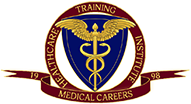If you know that a future of helping others in the medical field is right for you, then this blog post will help guide you take the next important steps to starting your health care career.
As there are many roles within the industry, planning your future and choosing the right career path can be a big decision to make. You’ll need to consider the following questions:
- Which career path should you start on?
- What kind of education do you need?
- Which program will prepare you for your future career?
- Where can you get your education?
It’s important to consider educational requirements, future job prospects, and the quality of the program you choose to enroll in.
Step #1: Figure Out What Kind of Health Care Career You Want
Typically, when one thinks of a job in healthcare, “nurses” and “doctors” are the first professions that come to mind. However, there are many other career possibilities that you may not have considered. If you’re eager to start your career quickly, becoming a doctor might not be the right career choice for you. Fortunately, there are programs with much shorter certification timelines and even on-the-job training. Allied health careers tend to require fewer years of training and education (and are far more affordable in terms of tuition), and are some of the fastest growing in the health care industry, with excellent potential for advancement in the field and good pay. These specialized careers support traditional medical professionals (including doctors, nurses, pharmacists, etc) and work side by side with them in medical facilities, hospitals, and other health care settings. As an Allied Health specialist, you may work as a medical assistant, patient care technician, medical billing and coding specialist (health information technology) or as a certified nurse aide, technician, technologist, or more. Allied health careers are great options for those desiring to enter the medical field with an affordable tuition—keep in mind that medical school tuition and nursing programs may cost as much as $150,000.
Which Career Is Best For You?
- Do you have an interest in working alongside doctors & assisting with day-to-day tasks in a busy hospital or fast paced working environment? Patient care technician may be a great career for you.
- If you’re interested in a hands-on career where you work directly with patients, Medical Assistant is a great choice.
- If you’re analytical and self-motivated, you should investigate a future in medical billing and coding.
- If you have a keen eye, a strong sense of attention to detail and an interest in technology, Ultrasound may be a great career for you.
Allied health school will train you for the specific career you choose.
According to the Bureau of Labor Statistics, from 2012–2022, the healthcare industry is expected to grow 2.6%. That’s faster than any other sector of the United States workforce!
Allied health is a field encompassing as many as 200 different careers in the health care industry. More than 5 million professionals in the United States work in allied health careers, representing around 60% percent of health care providers.
After researching your job options in healthcare, narrow your decision down to the field of study you’re interested in. If you aren’t certain about the career path to take, discuss your options with a career guidance counselor, or school Admissions department. They will help you choose the career that best matches your interests, future goals, and qualifications.
#2. Find a Health Care Training School That Meets Your Needs
If you’ve got your heart set on pursuing a career in the health care industry, consider these points when choosing among health care schools:
- Your desired career path.
- Your job prospects after completing the program.
- The quality of education you receive & coursework.
- School assistance in obtaining employment.
Your Educational Background
When applying to health care career school, you’ll need to find a program that serves your interest and that you qualify. Different roles in the health care industry require different kinds of education and certification. Educational requirements may vary depending on your program of interest, ranging from High School Diploma & GED, Bachelors Degree, Associates Degree, or some previous medical experience. It’s best to discuss individual program qualifications with an Admissions representative to find out what you qualify for.
Program Length
Many certificate programs can be completed in less than a year, or a little over a year, depending on which schedule you take.
When comparing pricing between schools, consider the number of training hours you’re receiving in the program, not just the overall length of the course. Certain programs may allow you to finish in 7 months at 400 hours, but an 800 hour, 14 month course may provide better employment prospects. Don’t settle for a quick program just because you want to finish more quickly, your overall goal is to obtain employment at the end of the course and the program you choose should help facilitate that goal.
Quality of Program
Although cost, location, schedule, and program length are important factors to consider, the quality of the education you receive should be your first and foremost concern.
You will want to choose a school offering the following:
- Hands on training, including an externship program to prepare you for entry-level employment.
- Preparation for state exams & other exams may be required at the end of the program.
- A certificate – and eligibility to begin entry-level work upon completion of the program.
- Career guidance, and job placement assistance. Help with your resume and interviewing options if necessary.
- Extra help available when you require it.
- Dedicated faculty.
- Small class sizes, so you receive the attention you need.
- A helpful and supportive school administration.
- A positive environment you can see yourself fitting in.
Before deciding on a school, speak with former students and schedule a tour to visit the facility you’re interested in. Or visit their Facebook, Instagram accounts or other social media profiles to get an idea of whether it’ll be a good fit for you.
During your tour, the Admissions staff will provide you with all the important information you’ll need, including course pre-requirements, Financial Aid, deadlines, tuition, and information you’ll need to know about career placement and your job search after graduation.
Step #3: Getting Started!
If you’re looking to make a career change, Allied Health Care programs can provide a shorter route to a satisfying new career. Some certification programs can be completed in less than a year!
Review all the programs available and decide which is a good fit depending on your specific interests, and the factors that are most important to you. Then, you can reach out to the Admissions staff at your school of interest. Keep enrollment deadlines in mind as you search!
Apply Now Today!


